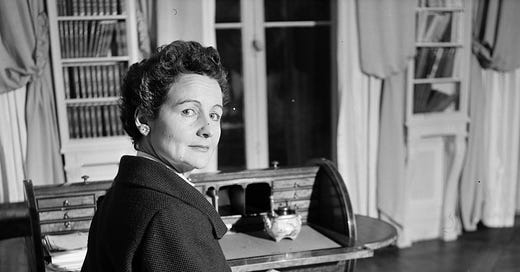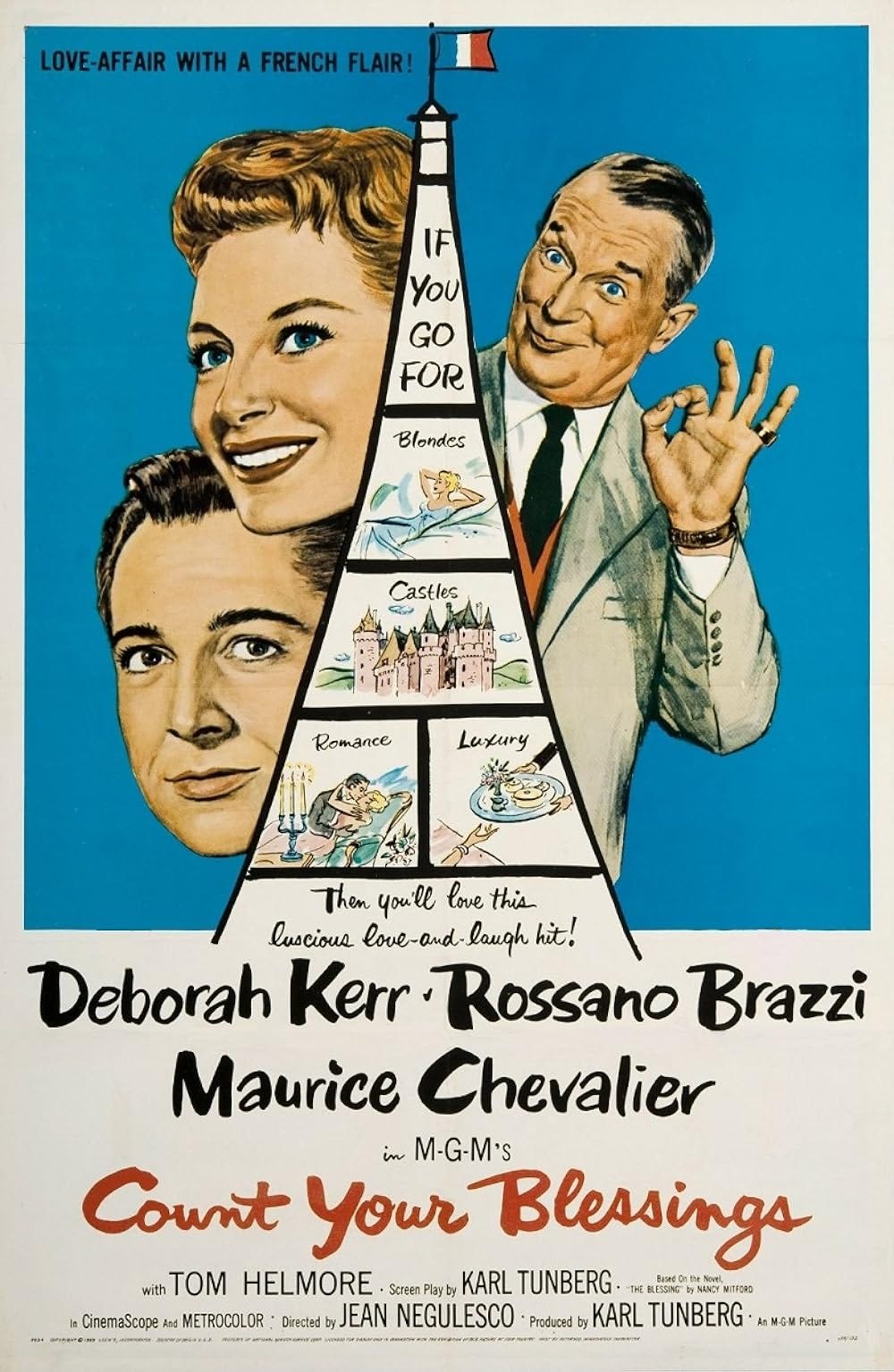I watched a couple of minutes of the most truly hilarious YouTube channel the other day. I had been looking for the film version of Nancy Mitford’s 1951 The Blessing - see above - and found a trailer, which made me more than happy not to be able to find the film. Deborah Kerr doing her best Rank-Charm-School-goes-to-Roedean voice; Rossano Brazzi (Italian) as her philandering French husband, winking at women in adjoining opera boxes with the finesse of Sid James playing Henry VIII; Maurice Chevalier, the Eiffel-Tower-plus-string-of-onions-plus-beret in human form, as the ‘Duc de St-Cloud’… no wonder Nancy herself said that she ‘hadn’t the heart’ to watch Count Your Blessings.
Then I saw a mention of the novel itself, in a description box.
I should say that I adore The Blessing. I concur absolutely with Evelyn Waugh, to whom the novel is dedicated, who wrote to Nancy that it was ‘admirable, deliciously funny, consistent & complete.’ Although this will never happen I should love to see it rescued from its permanent home in the shadow of those twin literary towers, The Pursuit of Love and Love in a Cold Climate. So I was interested to hear what a young booktuber made of it.
Well: she thought that The Blessing was absolutely dire. In fact - as she explained - she stopped halfway through, didn’t read another book for about two months (the implication being that The Blessing had left her sickened at the sight of words), then forced herself to finish it but my God had she suffered. Her criticism, something short of Leavis-level, was along the lines of: I hated it. I really hated it. Mainly because one of the characters is just so unpleasant. There’s an English woman who marries a Frenchman she hardly knows, he goes to war then comes back, and he’s just horrible. So, yeah.
I hated it.
I like to think Nancy would have screamed, or possibly shrieked, at this (what she would have felt, who knows, but so strong was her creed of ‘there’s always something to laugh at’ that it acquired truth even when it wasn’t true). For all its idiocy, however, the reaction did interest me. First, it was a pure example of a prevalent school of literary criticism: the one that takes things personally. I hate Heathcliff because he is cruel to dogs and because I love dogs I hate Wuthering Heights. That sort of thing. Or, in the case of The Blessing, I find the character of the husband - Charles-Edouard de Valhubert, a committed adulterer in the old Parisian tradition, although with him le cinq à sept extends way beyond two hours - so ‘horrible’, so offensive to my own philosophy of love and marriage, that the novel in which he appears is deeply upsetting to me, to the point where even finishing it is a great ordeal.
The fact that this, today, passes for a valid viewpoint - that unless characters/themes are likeable/relatable (can’t believe I just wrote that word) a book is impossible to enjoy; that a writer can be obliged to pander to the vanilla prejudices of an imaginary ideal reader - is, to my mind, truly terrifying.
Of course Nancy Mitford sought to please her audience, to give them what they enjoyed. To charm them. In Pursuit (1945) and Cold Climate (1949) she presented herself as a smiling gatekeeper to the aristocracy and, specifically, to the world of her own family, whose delicious eccentricity she offered up to readers (even, one might say, marketed) having scrubbed away the deep taint of their political affiliations.
Keep reading with a 7-day free trial
Subscribe to Laura Thompson’s Substack to keep reading this post and get 7 days of free access to the full post archives.





